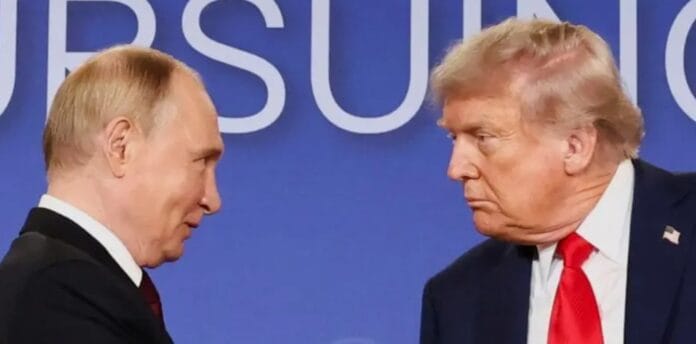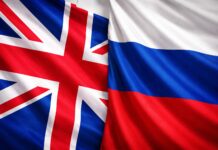As Trump and Putin reignite diplomatic dialogue, America must weigh the price of peace against the cost of concessions and climate chaos.
In a move both hailed as “historic” and critiqued as “reckless,” Donald Trump’s special envoy Steve Witkoff has confirmed that Russia has agreed to allow the U.S. and Europe to extend “robust” security guarantees to Ukraine. The proposal, unveiled after a confidential summit in Alaska between Trump and Vladimir Putin, aims to mimic NATO’s Article 5 a cornerstone of collective defence without formally admitting Ukraine into the alliance.
President Zelensky has cautiously welcomed the framework, calling it “practical and historic.” Yet critics in both Washington and Brussels are concerned that the peace plan, while diplomatically elegant, may be dangerously lopsided.
The Price of Peace or Appeasement?
According to reports, the proposed peace deal would see Ukraine withdrawing from Donetsk one of the most fiercely contested territories in the Donbas in exchange for a Russian freeze in military activity across Zaporizhzhia and Kherson. This territorial trade-off, reminiscent of Cold War bargaining, poses profound ethical and strategic questions.
Is America’s global leadership being recalibrated under the weight of transactional diplomacy? Can peace be sustained when built upon compromised sovereignty?
Witkoff insists Russia is willing to “live with” Western guarantees so long as Ukraine remains outside NATO. But as French President Emmanuel Macron stated, “If we’re not strong today, we’ll pay dearly tomorrow.” That sentiment echoes across Europe, where allies fear that Trump’s embrace of Putin complete with red carpets and friendly photo ops may embolden autocrats worldwide.
A Fragile Friendship and a Divided Oval Office
This is not Trump’s first controversial interaction with Ukraine’s leadership. In February, a tense exchange saw Trump accuse Zelensky of being “ungrateful” for U.S. aid and dismissing concerns of escalating toward World War III. Yet by April, the two had reconciled briefly at Pope Francis’s funeral—a reminder that in Trump’s world, diplomacy is often personal and performative.
The upcoming White House meeting, which includes leaders from the UK, France, Germany, NATO, and the European Commission, aims to put muscle behind the proposed security pact. Yet behind the scenes, concerns linger: will Zelensky be pressured into territorial concessions under the guise of “peace,” and at what geopolitical cost?
Climate Change: The Silent Casualty of War
Amid the intense political maneuvering, the climate crisis looms large yet unnoticed in most diplomatic statements. The war in Ukraine has devastated ecosystems, polluted water sources, crippled green infrastructure, and halted cross-border cooperation on climate targets.
Moreover, the new U.S.-Ukraine minerals deal securing American financial stakes in Ukraine’s rare earth resources reveals another layer of complexity. While the deal may help America reduce dependency on China for clean energy materials, it also hints at a future where geopolitics and climate agendas become inextricably fused.
Rebuilding Ukraine won’t just require tanks and treaties it demands sustainable infrastructure, resilient energy systems, and environmental repair on an unprecedented scale.
America’s Crossroads: Leadership or Leverage?
For the U.S., the stakes couldn’t be higher. If the deal proceeds with genuine multilateral support and transparency, it could mark a new era in Western diplomacy one that safeguards democracy without triggering global war.
But if it’s driven by backroom deals, transactional interests, and political theatre, America risks sacrificing long-term stability for short-term optics.
With an ICC arrest warrant still hanging over Putin for alleged war crimes, the optics of a warm Trump-Putin summit drew criticism from international observers. It’s a reminder that how peace is achieved matters just as much as whether it is achieved.
A Deal Worth the Cost?
The U.S. now stands at a critical juncture. Does it solidify its role as a principled global leader committed to democratic values and climate justice? Or does it gamble away its credibility in exchange for an expedient, but fragile, truce?
As the world watches Washington, the true test of leadership is not just ending war but building a future where peace, sovereignty, and planetary survival coexist.




